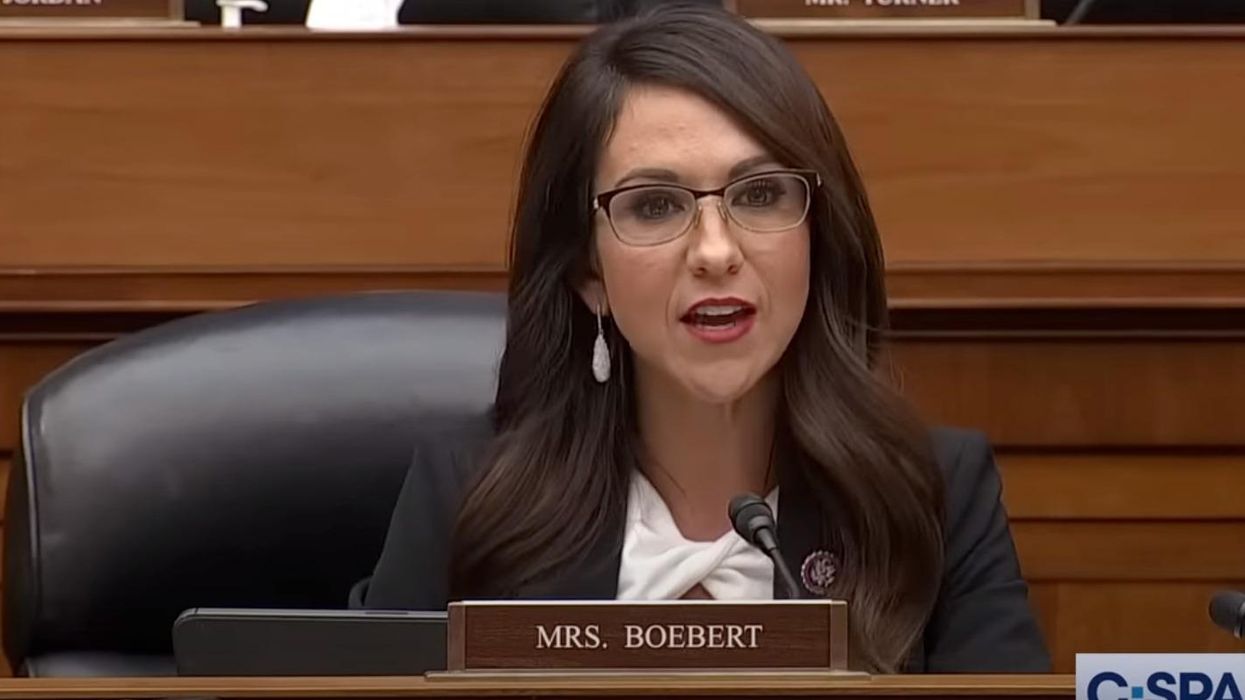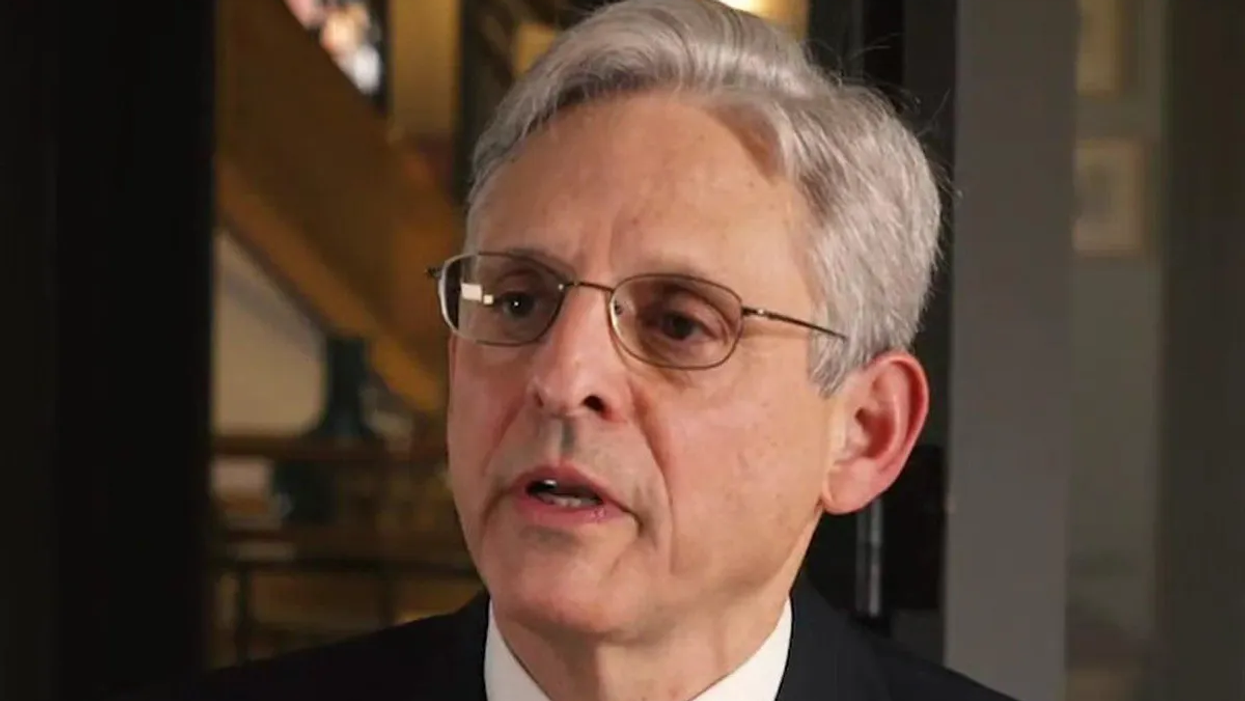"There were really scary numbers in Atlanta," said Andrea Miller, whose Virginia-based nonprofit, Center for Common Ground, focuses on empowering underrepresented voters across the South. Through Election Day, its volunteers sent 875,000 postcards to Georgians and followed up with phone calls and texts. "Look at DeKalb County," she said. "173,000 voters did not show up."
Five million Georgians voted in the presidential election, a million more than the 2018 governor's race, and a reflection of a state whose politics and demographics are changing and sparking participation across the political spectrum. Against this backdrop, Georgia's voters of color could play a crucial role in upcoming U.S. Senate runoffs on January 5, contests that could change national politics.
If Georgia's incumbent Republican senators, David Perdue and Kelly Loeffler, are defeated by Democrats Jon Ossoff and Rev. Raphael Warnock, the Senate majority would return to Democrats. That shift, should it occur, would allow President-elect Joe Biden to govern without gridlock and possibly enact broad reforms.
There has not been an election of greater national significance in Georgia in years. The political parties, candidates and political activists across America know this. Whether Georgia's communities of color have reason to believe that this election or their votes will matter, perhaps in numbers to tip the outcome, is another question. Georgia runoffs are among the state's lowest-turnout elections.
Much of the political money flowing into the state for the runoffs is buying ads targeting voters in the biggest cities and suburbs. But Miller and like-minded civil rights organizers with visibly active operations across Georgia—such as Black Voters Matter, the Georgia Coalition for the People's Agenda, the NAACP, and the New Georgia Project—say that voters of color, particularly in smaller cities and rural areas, won't be moved by political advertising. But they could turn out in unexpected numbers if asked by trusted friends, family, and clergy.
"They are not on anybody's lists," said Miller, in a mid-November interview. "We have already postcarded all 2.7 million community of color voters in Georgia to let them know that this runoff is coming up."
"We've been out registering people," Ray McClendon, a lead organizer with Atlanta's NAACP, said the first week of December. The chapter has been coordinating with other NAACP chapters and business and community groups in 19 counties where 77 percent of the state's Black voters live. "We registered 300,000 people between the November 3 election and this past weekend."
The NAACP hopes that it can prompt 25 percent of registered voters in its targeted counties to vote in the runoffs, said Richard Rose, the Atlanta NAACP president. "We want to get about 500,000 Black voters back to the polls… Part of our job is education. Putting forth the issues, to say, 'Hey, these are the issues that should concern you. And you need to vote to express your interest.'"
But it will be hard to motivate people to vote in the Senate runoffs, Rose said. The national stakes matter less than issues that touch daily lives, he said, such as the possibility for better health care options, a COVID-19 stimulus check or a small business loan. There's also a runoff for a seat on the Public Service Commission, which regulates utility costs, which has never been held by a Black person or a woman.
"Health care, fair wages, justice," Rose said. "You've got to have a list that people can grab and hold on to… So our door hanger deals with those issues. The flip side talks about [the voting] process."
Still, many voters of color have taken notice that Georgia has become a national battleground after Biden narrowly beat Trump, meaning their votes have greater weight. And Rev. Warnock is an African American pastor who led the Atlanta church where Rev. Martin Luther King Jr. once preached.
"We have to continue to demonstrate the message," Rose said. "Remember, a big problem of voter turnout in the Black community is the reaction to the generations of oppression, where Black voters didn't matter—really didn't matter."
'Demonstrate the Message'
Georgia has many voting rights groups, including some with national reputations such as Stacey Abrams' Fair Fight Action and the New Georgia Project. Abrams' efforts have been praised for their outreach to voters—especially younger people in Atlanta as part of her unsuccessful 2018 gubernatorial bid. But as the fights over Georgia's 2020 presidential results continued after Election Day, only a few groups could be seen in mid-November reaching out to voters for the runoffs.
One group was the Center for Common Ground. By Thanksgiving, it had booked 15 billboards across Georgia, had 40,000 volunteers from across the country write postcards to millions of Georgians and was buying cell phone numbers for use in get-out-the-vote phone and text banks to be staffed by local Georgians.
A partner of the center, Vote Equality, sent an eye-grabbing purple Winnebago RV—labeled "The Notorious RVG" above the front window, which stands for Ruthless Vote-Getter—to the small city of Warner Robins in middle Georgia. Vote Equality promotes passage of the Equal Rights Amendment granting full rights to women. Its role is complementing regional organizers for Black Voters Matter, a Georgia-based group with regional offices. One of its colorful "We Got the Power" vans and local volunteers were registering voters before a December 7 deadline.
Crucially, Black Voters Matter's organizers were poised to listen to people's concerns and to start a conversation that subtly reminded them that their issues were on the runoff ballot. As the NAACP's Rose said on a Zoom call the first week of December about the coalition's efforts, "You have to have a relational strategy; broad broadcast advertising for political ads does not work. You have to have a grassroots, on-the-ground, relational campaign."
One such campaign could be seen on a Saturday morning before Thanksgiving in Hawkinsville, a town about a half-hour drive from Warner Robins.
"Hey! How y'all doing? How are you?" said Fenika Miller, Black Voters Matter's organizer for middle Georgia. Miller—no relation to Andrea Miller—was greeting a trickle of people who came by to see what was going on at a table on which a banner read, "BLACK VOTERS MATTER" and "IT'S ABOUT US." Pulaski County, where Hawkinsville is located, has equal numbers of white and non-white voters, but more white people voted this fall.
Besides paper forms and electronic tablets to register voters, update registration information or request an absentee ballot, Miller's table had bags, T-shirts and sweatshirts to give away—all with Black Voters Matter in big letters. The items were free, once people were registered and said they would plan to vote—and promised to tell their friends and family to do the same.
"Visibility is everything," Fenika Miller said. "That's why we do what we do. That's why we have these vans. That's why they [Vote Equality] have the [purple] RV. Because this year has been different. We haven't been able to engage people in the same way due to COVID. It's also about people seeing that someone has not forgotten about their community, has not forgotten about their issues, has not forgotten that they matter, and they have power."
Not Quite Swing Counties
Seen from out of state, Georgia has joined the ranks of states where elections of national consequence can be determined by small voting blocs that lean left or right. But seen locally, such as in Warner Robins, a city that anchors Houston County, where 30,000 registered voters skipped the November election and where Fenika Miller grew up and is based, communities of color still lack political representation—although their momentum has been slowly building.
Houston County is one of the many counties in Georgia where civil rights groups hope to turn out voters who are not on the national political radar. Its population is 160,000 and it calls itself "Georgia's Most Progressive County." It was little more than cotton fields and two-lane roads before the Robins Air Force Base was built in the early 1940s. Warner Robins, its commercial center, is next to the base and is touted locally as "The International City." The main street is a four-lane boulevard with a medical center, small businesses, restaurants, chain stores and city offices near the base. There are few vacancies or boarded-up buildings.
But behind the boulevard are pockets of poverty. Inside old subdivisions of small homes are families in which people often have several jobs to make ends meet, said Fenika Miller. The public schools are good, but they lack funds to ensure that every child has a computer, which is crucial for remote learning during the pandemic. Meanwhile, federal pandemic relief has not trickled down to the city's small businesses. These tensions, which are not unique, shape daily life and are baselines for Miller's organizing to uplift local communities of color.
The local power structure has produced some of Georgia's most notable white politicians. Former Sen. Sam Nunn, a Democrat, is from here. So is Sen. Perdue, whose first cousin, Sonny Perdue, is a former Republican governor of Georgia who switched parties from Democrat—at a time when many establishment Democrats became Republicans. Regardless of party, most local officials, from school boards to city hall to state legislators, still are held by white men. But that pattern was being challenged, Fenika Miller said. This is partly because organizers like Miller and groups like Black Voters Matter have become steady presences to empower their community.
In 2020, a full slate of candidates, many of them people of color and women, ran for local office, she said. While they lost, some, such as in the district attorney race, came close to winning. That was a sign that her community's voters were paying attention. In the run-up to the 2020 general election, Black Voters Matter was the only group "with boots on the ground" in middle Georgia, she said.
Voters Surprised By Election Results
"We worked really hard, but we were surprised, as was the rest of the country and the state, when our vote-by-mail applications came in," Miller said, referring to the volume of voters who applied for an absentee ballot this fall. "In Houston County, Biden won our vote by mail. We gave him the first bump in the state. People said, 'Oh my goodness.' First, people didn't know there were that many [absentee ballots] out there. And then they saw Biden win a traditionally red county, the home of [former] Gov. Sonny Perdue."
Organizers like Fenika Miller hope that voters in Georgia's communities of color can feel they are building momentum that translates into political power. As a December 7 voter registration deadline for the runoff nears and early voting starts a week later, Republicans have dominated the airwaves with negative ads that acknowledge that new political currents are challenging the GOP.
The TV ads are "dog whistles," Miller said, meaning they have implicit race-based messages that don't need any explanation, such as claiming that Rev. Warnock was dangerous because, among other things, he stood by Rev. Jeremiah Wright, an outspoken pastor whom President Obama knew but distanced himself from in 2008. Drawing lines between "good" and "bad" Black people was not new in Georgia, Miller said, but it also was not on the minds of the would-be voters she was reaching out to.
"My job is to make sure that our community understands fact-based issues around how we can build power, why we need to engage in the process, and what's at stake," Fenika Miller said. "How we frame that, and help our communities to understand that, and show up for them, while, in turn, they show up for all of us, is going to be completely important."
Steven Rosenfeld is the editor and chief correspondent of Voting Booth, a project of the Independent Media Institute. He has reported for National Public Radio, Marketplace, and Christian Science Monitor Radio, as well as a wide range of progressive publications including Salon, AlterNet, The American Prospect, and many others.












